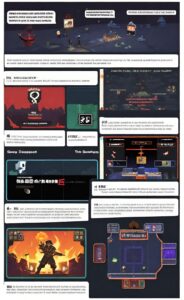Search engines are an integral part of our daily lives, allowing us to access a vast amount of information with just a few keystrokes. However, what many people may not realize is that popular search engines have the power to shadow ban and hide websites they don’t like. This form of censorship, known as shadow banning, is a subtle way for search engines to control the flow of information and limit the visibility of certain websites.
Shadow Bans, Censorship, and Online Expression
Shadow bans represent a covert form of censorship, operating under the radar to influence what content gets seen or remains hidden online. This practice directly impacts online expression, essentially acting as a gatekeeper that can mute certain voices and amplify others without any apparent rationale or notification to the affected parties. Unlike overt censorship actions, which can provoke public outcry and debates about free speech, shadow banning is insidious, leaving its targets often bewildered and searching for answers as to why their digital footprint seems to evaporate.
This silent form of content suppression challenges the notion of the internet as an open platform for sharing a range of ideas, opinions, and creative expressions. When search engines and platforms employ shadow bans, they wield an enormous power over public discourse, potentially shaping narratives and influencing public opinion by omitting dissenting views or controversial topics from the conversation. This not only affects the individuals and entities who find themselves shadow banned but also deprives the wider online community of a multiplicity of viewpoints, contributing to a more polarized and less informed society.
Moreover, the practice raises significant questions about the criteria used for shadow banning decisions and the lack of recourse for those affected. With algorithms playing a central role in determining what content is suppressed, there is an urgent need for more transparency about how these technological tools define and detect so-called problematic content. As the boundaries of acceptable online expression continue to evolve, the conversation around shadow bans, censorship, and the right to digital expression becomes increasingly critical.
Understanding Shadow Bans and Their Origins
The concept of shadow banning originated in the digital forums and social networking sites of the early internet era as a means to quietly restrict the reach of spammers and abusive users without alerting them to the enforcement action taken against their accounts. This approach was initially seen as an effective tool to maintain community standards while avoiding the escalation that can accompany overt moderation actions, such as account suspensions or public warnings.
Over time, however, the application of shadow banning has broadened beyond its original intent. Platforms and search engines began to apply similar techniques to content and accounts not for reasons of spam or abuse, but to filter out what they determine to be undesirable based on a variety of opaque criteria, which may include political viewpoints, controversial topics, or simply content that does not adhere to the subjective norms of the platform.
This evolution in the use of shadow bans has sparked a significant debate regarding digital rights and the power dynamics between users and platform operators. The shift from a focus on clear violations of community guidelines to more ambiguous and subjective criteria for suppression has highlighted the challenges in balancing content moderation with the principles of free expression. As these practices became more widespread, concerns grew about their implications for digital discourse, leading to increasing scrutiny of how platforms manage their role as gatekeepers of information and arbiters of visibility online.
How Search Engines Implement Shadow Bans
Search engines utilize sophisticated algorithms and artificial intelligence to determine which websites or pieces of content should be shadow banned. Unlike overt bans where a site is completely removed from search results, shadow bans are much more subtle, pushing content so far down in search rankings that it becomes virtually invisible to the average user. These algorithms assess various factors such as the quality of the content, user engagement, and compliance with search engine policies. However, the specific parameters and the decision-making process remain largely opaque, leaving content creators in the dark about how to avoid or remedy a shadow ban.
Machine learning models are continuously updated to scan and evaluate web content against evolving criteria, which might include the perceived authenticity of information, the presence of misinformation, or the detection of manipulative SEO practices. This constant evolution means that what is considered acceptable or high-quality content can shift, sometimes unexpectedly, further complicating the challenge for creators trying to navigate the landscape of online visibility.
In some cases, human reviewers play a role in the shadow banning process, making subjective judgments about content that algorithms flag as potentially problematic. However, the scale of the internet and the volume of content generated daily means that these interventions are limited and often focus on more high-profile cases. The combination of these automated and manual processes creates a complex system where content can be suppressed without clear explanation, making it a formidable challenge for those affected to adapt or contest the decisions made by search engines.
The Impact of Shadow Banning on Content Creators
For individuals and organizations dedicated to producing digital content, the repercussions of shadow banning extend far beyond a temporary dip in page views or social media interactions. This stealth form of censorship can severely disrupt the ability of creators to distribute their work, communicate with their audience, and ultimately sustain their digital ventures. A shadow ban, by making content difficult or impossible to find through search results, can effectively isolate creators from their existing audience and prevent the acquisition of new followers or customers.
Creators who experience a shadow ban often find themselves in a perplexing situation. Despite adhering to best practices for SEO and content quality, their traffic inexplicably declines. Without a clear indication from search engines that their content has been demoted, they are left to speculate on potential reasons and solutions, investing time and resources into troubleshooting a problem they can neither see nor fully understand. This lack of transparency and feedback from search engines adds an additional layer of challenge, forcing creators to navigate a maze of optimization strategies without a clear sense of direction.
The toll is not just professional but also personal. Many content creators invest significant emotional energy and passion into their work, and a shadow ban can feel like a silencing of their voice. This impact on creators underscores the need for a fairer, more transparent approach to content moderation, where the rules of the digital road are clear and all voices have the opportunity to be heard.



The Implications of Shadow Banning for Online Freedom
The presence of shadow banning on prominent search engines introduces a subtle yet powerful form of control over the digital landscape, affecting the breadth and diversity of accessible information. By selectively reducing the visibility of content, these platforms exert a significant influence on the online marketplace of ideas, potentially sidelining critical, dissenting, or unconventional perspectives. This manipulation not only compromises the diversity of available content but also challenges the foundational principles of internet freedom, where the equal opportunity to disseminate and access information is paramount.
Moreover, the opaque nature of shadow banning mechanisms makes it difficult for users to discern whether their inability to find certain information is due to censorship or other factors. This lack of clarity and transparency undermines trust in digital platforms as neutral spaces for information exchange and fosters a homogenized online environment where only certain viewpoints are readily accessible. As a result, the practice of shadow banning can inadvertently promote echo chambers, where users are exposed to an increasingly narrow slice of the digital world, diminishing the potential for exposure to diverse viewpoints and the robust debate that is essential for a healthy democratic society.
Fighting Back Against Shadow Bans
Engaging in the battle against the impacts of shadow bans requires a proactive stance from both content creators and the broader online community. A key strategy in this fight is the pursuit of transparency, pushing for clear, understandable guidelines from search engines regarding content moderation policies. This transparency would not only provide creators with the insights needed to navigate the complexities of shadow banning but also ensure a level playing field for all voices on the digital stage.
Another crucial aspect is the mobilization for accountability. This involves advocating for mechanisms that allow for the review and appeal of shadow ban decisions, giving creators a chance to address and rectify issues that may have led to their content being suppressed. Engaging with industry watchdogs, participating in public forums, and leveraging social media to share experiences of shadow bans can amplify the call for these changes.
Diversification of content distribution channels also serves as an effective countermeasure. By extending their presence across multiple platforms, creators can reduce the risk of being silenced and maintain the ability to reach their audience, regardless of the censorship tactics employed by any single platform.
Finally, building and nurturing direct relationships with audiences through alternative communication channels, such as newsletters or direct messaging, can help creators circumvent the barriers posed by shadow bans. This direct line of communication ensures that creators can continue to share their message and engage with their followers without undue interference.













